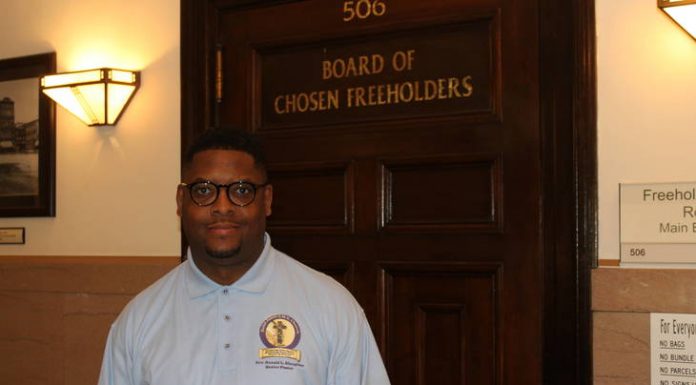Gov. Phil Murphy has restored a potential lifeline to five New Jersey cities — Bridgeton and Camden among them — by signing legislation that allows businesses there to charge “half-price” state sales tax as an economic incentive.
The clock had run out on the original five Urban Enterprise Zones, which also include Newark, Trenton and Plainfield. After their UEZ status expired last year, former Gov. Chris Christie refused to renew it, citing the hit on the state’s revenue, and calling UEZs a “failed 30 year experiment.”
Murphy agrees to reduced sales tax in these 5 N.J. cities
Gov. Phil Murphy signed a law extending the state’s Urban Enterprise Zone program.
The full list of UEZ cities has swelled to 32, and Christie estimated that the state would have lost $2.23 billion in potential revenue if all UEZs stayed in place for the next decade.
a bill that would have extended the first five UEZs for 10 years.The new bill Murphy signed May 30 took effect immediately, and granted the original five towns five years of charging half the prevailing sales tax rate. The current full rate is 6.625 percent, but Murphy’s original 2018-2019 budget plan would bring it back up to 7 percent, with the UEZ-town rate at 3.5 percent.
Signing the renewal was sensible because it restores an even playing field with the cities where ongoing UEZs haven’t expired yet. The new law sets the same expiration date, 2023, for all other municipalities whose UEZs would have expired before that time.
However, from a a statewide perspective, the legislation postpones the day of UEZ reckoning again. It calls for — what else? — another study, which the Department of Community Affairs is supposed to deliver to the Legislature. But the DCA will make “recommendations,” which lawmakers may implement, or ignore for political reasons.
Although there was a fair amount of restoration lobbying from the cities that lost their special tax status, we haven’t heard many “horror stories” about businesses that fled during the full-rate sales tax window. Nor did we hear much jumping for joy when half-rate returned to the affected cities.
It would be a good for taxpayers statewide, and the towns that are supposed to benefit, to know if they are really getting anything of value in exchange for forfeiting roughly $1.25 billion in revenue over five years. Does having 32 UEZ municipalities dilute the program so much that it prevents the most desperate ones from making the retail rebirth that they need? (Salem County has half-rate sales tax under a separate law that recognizes that the county is right across from no-sales-tax Delaware.)
Perhaps that forced “experiment” — a year with full sales tax in Newark, Camden, Bridgeton, Trenton and Plainfield — can provide the best possible data. How many businesses moved out during the “blackout”? How many businesses canceled plans to come in? What if there was no effect whatsoever?
The governor should be just as interested in knowing the cost/benefit ratio for UEZs as he seems to be in learning the worth of New Jersey Economic Development Authority programs that grant tax incentives to individual businesses, and which look to be disproportionately steered to the politically connected in Camden. Murphy wants a full audit of that program. He should make sure that any look at Urban Enterprise Zones is just as thorough.
New Jersey shouldn’t abandon UEZ cities financially, or crush any momentum they might have in growing downtrodden business districts. But the dollars ought to go to what works, not necessarily to longtime programs whose legacy status — rather than any proven effectiveness — have kept them going.















